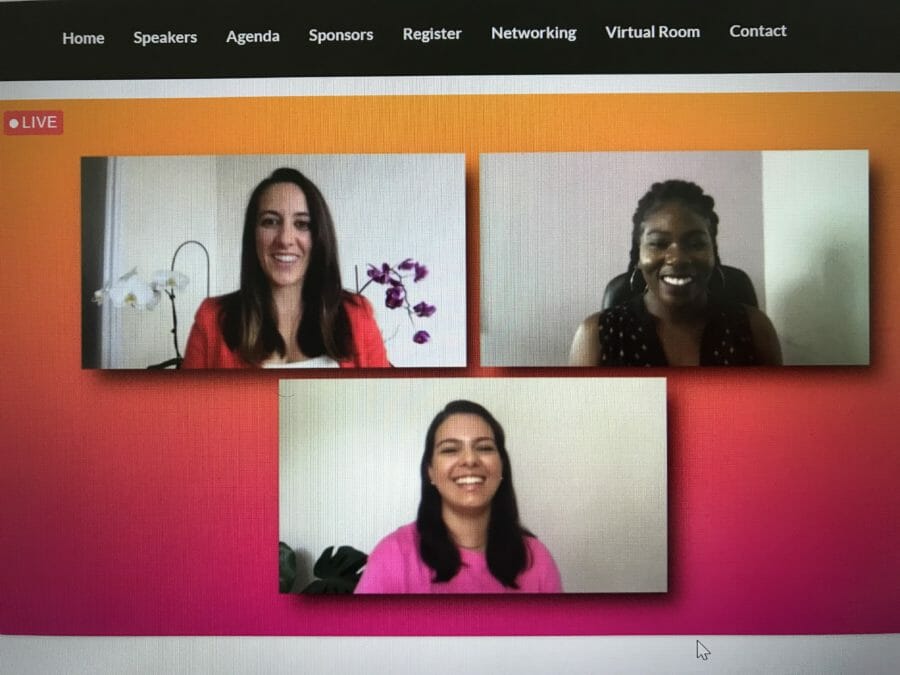The Virtual Women in IT Summit ensured that the IT sector didn’t forget about the importance of diversity while continuing to carry out innovation during the current pandemic.
A variety of areas were identified as needing improvement when it comes to promoting diversity and inclusion, including recruitment, the way various technologies are used, and office politics. This comes despite a recent McKinsey study finding that gender and ethnically diverse boards within companies increased financial returns as much as 43%.
“3% of black people are currently working in the tech industry,” said Abi Mohamed, cyber programme manager at Tech Nation, during her talk on diversity going beyond gender. “The numbers are also low when you look at gender, age, disability and class, so we’re not really solving diversity in tech.”
Promotion from the top
Mohamed went on to provide three ways that decision makers can do their bit to increase diversity within their workforce.
The first step mentioned was to keep a closer eye on the hiring process, ensuring that more diverse pools of candidates were considered, and hiring a diversity and inclusion consultant if unsure of where to start.
“People are finally listening and wanting to learn,” said Mohamed. “I’ve seen so many tech companies right now tweeting, asking for help, hiring D&I consultants, and making it their first priority because they know there are consequences.”
Secondly, showing support for vehicles who are already actively promoting diversity, before and during the pandemic, can make difference, followed by getting fully educated on the current state of diversity in tech.
“Most CEOs want to create an elaborate plan, but the first thing you should do is have a transparent conversation with your staff,” Mohamed explained. “If you don’t understand, say you don’t understand, and educate yourself.”
FTSE 100 boards lack diversity, with too few BAME Directors — DiversityQ
Diversity of mindsets
In addition to demographics among IT professionals, the event addressed the importance of mindset diversity, which was summed up by Caroline Gorski and Manisha Mistry, group director and head of digital culture at R2 Data Labs, using three equally vital types of people: punk, geek and superfreak.
While the geek focuses on learning digital skills and implementing them, the punk breaks down traditional structures and looks for new ways of using tech.
Covid-19 and digitalisation: 4 areas of tech set to boom post-pandemic
Gorski explained: “Having a punk mindset is about sticking two fingers up to the people who tell you that you can’t do what you know you should be able to do.
“I’m afraid to say as I’ve gone through my career, I have got more and more punkish and less establishment.”
“I am a geek,” said Mistry. “I want to learn the various theories, apply them and then jumble them all up and mash them all together.”
The superfreak, meanwhile, is currently less common, and brings aspects of the punk and geek together while generating energy.
Having these varied ways of thinking about how to go about projects ensures that innovation is maintained, especially during a pandemic.
Advocating a test and grow culture
Another aspect of work within IT that proves a concern is office politics, with this often being an obstacle to growth, as discussed by Derin Bamgbelu, learning and development advisor at GroupM, and Sara Chandran, CEO of Fresh and Fearless.
Chandran explained that for a workplace to truly allow for growth, it must “welcome failure”, and should be “a supportive environment that enables people to do that.
“It recognises that mistakes are just part of the process when it comes to success.”
Attention was also drawn to a feeling of imposter syndrome, a psychological term that refers to employees constantly doubting their own success and fearing being exposed as a fraud, which research says is felt among six in 10 women, and is also felt by BAME employees, despite many not knowing what the term is.
“I felt like I was going to get exposed in my role, because I was the only person who looked like me in that team and felt I had to work harder,” said Bamgbelu, referring to an earlier stage in her career.
Bamgbelu went on to talk attendees through three ways that companies can contribute to building and maintaining a test and grow culture:
- Cancel office culture in favour of an environment of support.
- Build up soft skills among entry level employees.
- Ensure that staff learn quickly from mistakes and make small changes.







